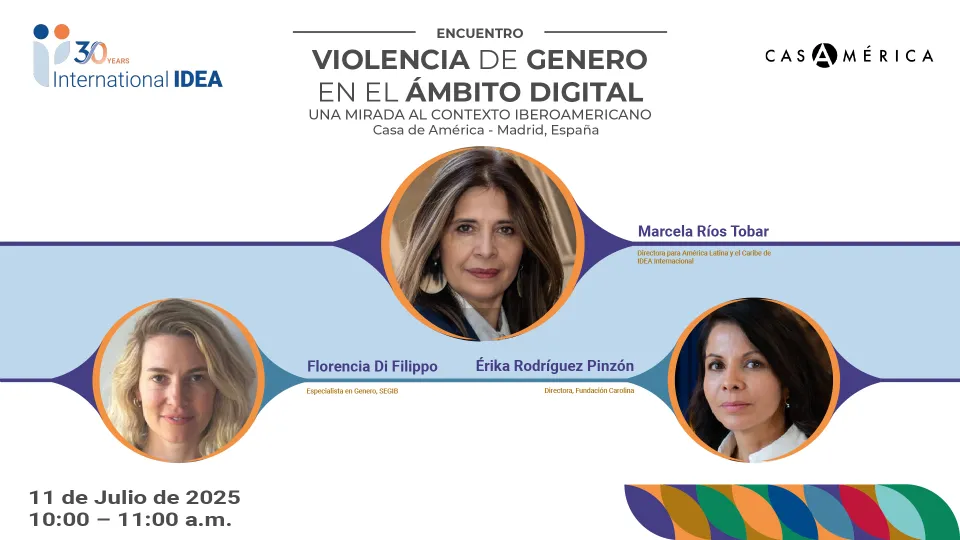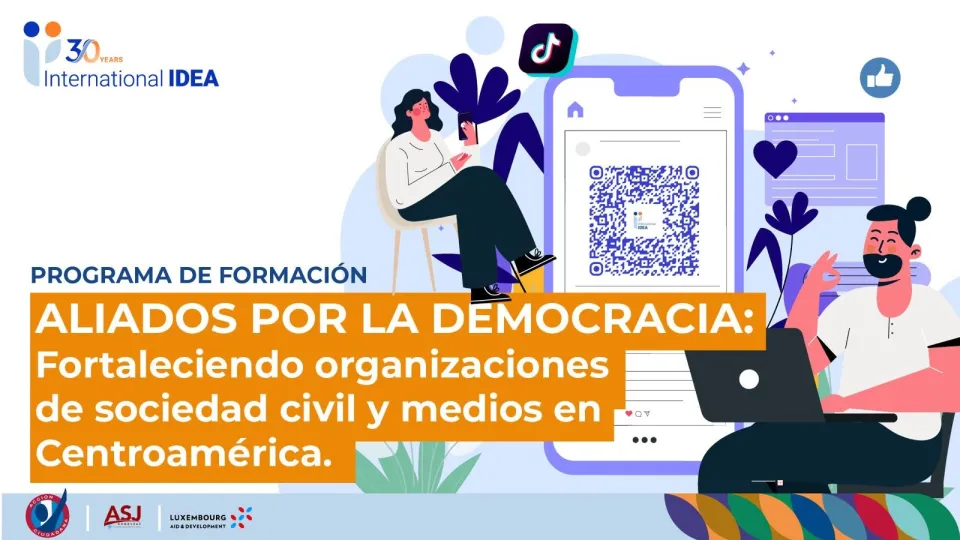European Commission President Ursula von der Leyen's political guidelines and the Mission Letters for the Commission candidates already gave a sneak peek of what's in the pipeline for democracy, with the announcement of the creation of a European Democracy Shield.
Búsqueda
Region
Country
Type
Committed to the advancement and protection of democracy, the representatives from International IDEA’s 35 Member States gathered at the Swiss Mission to the European Union on 5 February 2025 to discuss a critical issue: how inclusion and human rights can support democratic resilience in an increasingly volatile world.
On December 6, 2024, the European Social and Economic Committee (EESC) hosted a Policy discussion titled “Forging the European Democracy Shield: Expanding Scope, Deepening Impact, and Maximising Political Leverage” in collaboration with International IDEA, the European Partnership for Democracy and the Kofi Annan Foundation. Nearly 100 participants attended the event, including civil society, member states, EU institutions, academia, and media.
On 19-20 September, Brussels was abuzz with insightful discussions as it hosted the 10th edition of the International Democracy Day (IDD) Brussels conference.
This article was first published as a guest contribution in Friends of Europe's 'Critical Thinking' Online Policy Magazine
By Sam van der Staak, Director for Europe at the International Institute for Democracy and Electoral Assistance (IDEA)
Europe is at a critical juncture, with the new security context bringing forth a crucial question: How can an expanding EU maintain and strengthen rule of law at its core? With the support of the Belgium Ministry for Foreign Affairs, International IDEA delved into the interplay between the external and internal dimensions of the rule of law to assess how the EU can be ready for enlargement while standing firm on its values.
In an era where digital platforms have become arenas for political discourse, fuelling the use of unethical campaigning and the spread of disinformation, trust in the legitimacy of election campaigns grows in importance.
Join a Q&A meeting on Day 2 of the Summit on Wednesday, 28 February 2024, at 2 pm CET/8 am EST.
International IDEA’s collaborative efforts with partners such as the European Partnership for Democracy, have significantly influenced the formulation of the European Commission’s Defence of Democracy package. This success is marked by a series of impactful joint initiatives conducted throughout 2022 and 2023:
On Tuesday, the European Commission launched its long-awaited Defence of Democracy package. For months, public debate around the package has been absorbed by controversy over its Directive on interest representation by third countries, the centrepiece of which is a transparency register for donations from outside the EU.
This Brief presents some findings on the Summit for Democracy process from the perspective of participating countries based on a selected number of interviews with representatives from the governments of six countries (Germany, Lithuania, Norway, Spain, Sweden and Zambia) and the European Union (European External Action Service).
As political campaigning in the lead-up to elections has moved online, parties and candidates have found new and innovative methods for connecting with voters. However, new challenges have multiplied, with the regulation and oversight authorities struggling to keep up. Campaign communications are increasingly opaque online, thus enabling harmful mis- and disinformation to influence electoral narratives.
This report seeks to contribute to the success of the Summit for Democracy process by drawing lessons from the Year of Action and Second Summit and presenting opportunities for shaping an inclusive and effective Third Summit for Democracy.
In recent years, the global democracy landscape drastically changed. This Policy Brief argues that the European Union's narrative on democracy should be adjusted to respond to this new geopolitical reality. The EU should take a leading role in defending democratic and accountable governance and explaining its benefits for citizens.
This paper provides an overview of the purpose, work and outputs of the 16 Democracy Cohorts established or announced by February 2023 in the context of the Summit for Democracy organized by the US Government.
The main contribution of the Democracy Cohorts to the Summit for Democracy process is as key drivers of change by following up on and scaling up existing commitments, and establishing a vision for democratic renewal beyond the Second Summit.
The European Union has traditionally been one of the world’s staunchest advocates of democracy but major changes have affected the global democracy landscape in recent years. With the support of the Swedish Ministry for Foreign Affairs, International IDEA led an analysis of the EU’s external democracy policy during 2022 to inform the EU discussion on democracy during Sweden’s 2023 Presidency of the Council of the EU.
The first Summit for Democracy, held in December 2021, brought together leaders from governments, representatives of the European Union and the United Nations with some involvement of civil society and the private sector. The objective was to set out an agenda for democratic renewal.
This Discussion Paper puts together relevant data on the inclusion of young people and women in European Parliament elections.
Democracy involves popular control over decision-making, and political equality among those exercising that control. In parliamentary democracies, day-to-day control is delegated to elected politicians, who organize themselves in political parties. Globally, political parties have become an important interface between government and the people.


